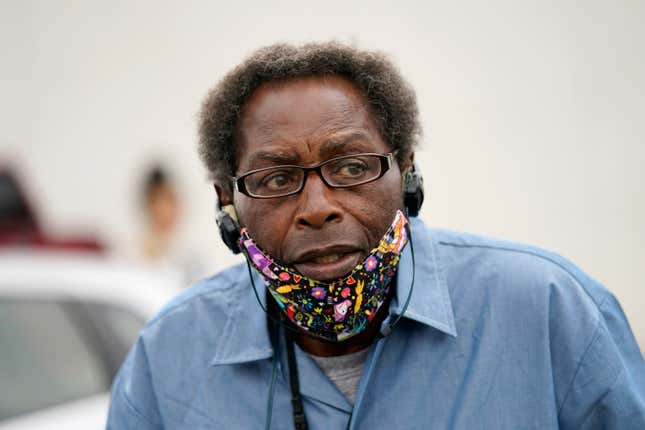
In 1963, Henry Montgomery was skipping school when a plainclothes officer walked up on him. As a Black teen living in the South, he was startled by the white man so he shot him. Montgomery was just 17 and didn’t know the man he’d just shot was East Baton Rouge Sheriff’s Deputy Charles Hurt. Montgomery was initially sentenced to death but was later re-sentenced to life in prison.
On Wednesday, after 58 years in prison, a three-member Louisiana parole board voted unanimously in favor of Montgomery’s parole.
NBC News notes that Montgomery, who spent his entire adult life in Louisiana State Penitentiary, also known as Angola, was upbeat after learning of his release.
“It’s wonderful. Everything has changed. It’s a whole new game,” he said.
Montgomery, who has always taken responsibility for his crime, was remorseful for what happened that day in 1963.
“I’m really sorry that I, that this happened,” Montgomery said during his hearing, NBC News reports. “I am going to have to live with this all my life, the rest of my life.”
From NBC News:
Greeting Montgomery upon his release was Andrew Hundley, the first former juvenile lifer in Louisiana to have been released because of Montgomery’s Supreme Court case. After his release following nearly 20 years in prison, Hundley co-founded the Louisiana Parole Project, a nonprofit group that helps former inmates re-enter life outside prison. Montgomery will now be part of the program.
“Today, Henry being home is a symbol of hope,” Hundley said. “For individuals who go to prison when they are young people, Henry coming home is a message to them that their lives matter and that they can redeem themselves and that they are better than the worst mistake that they ever made.”
Hundley said it says a lot about Montgomery’s character “that he was happy and full of grace in knowing that people were able to come home after the U.S. Supreme Court decision that holds his name.”
Not everyone was happy to hear that Montgomery was being released. Hurt’s daughter, Linda Hurt Woods, noted that she doesn’t believe Montgomery is sorry.
“I don’t believe he’s sorry. He made a decision at 17 years old,” she said. “You know right from wrong at 17 years old. I did. I was raised if I made a mistake, I suffered the consequences.”
In 2012, the Supreme Court ruled that life sentences for juveniles were unconstitutional. “The decision said in part that science showed that ‘it is increasingly clear that adolescent brains are not yet fully mature in regions and systems related to higher-order executive functions such as impulse control, planning ahead, and risk avoidance,’” NBC News notes.
In 2019, Montgomery told NBC News’ Lester Holt he wasn’t upset that several juveniles had benefited from his case and hoped that more would be released.
Montgomery was denied parole in 2019 and was still upbeat.
“I’m going to keep my mind on trying to get out,” he said. “You got to keep your hope alive.”

